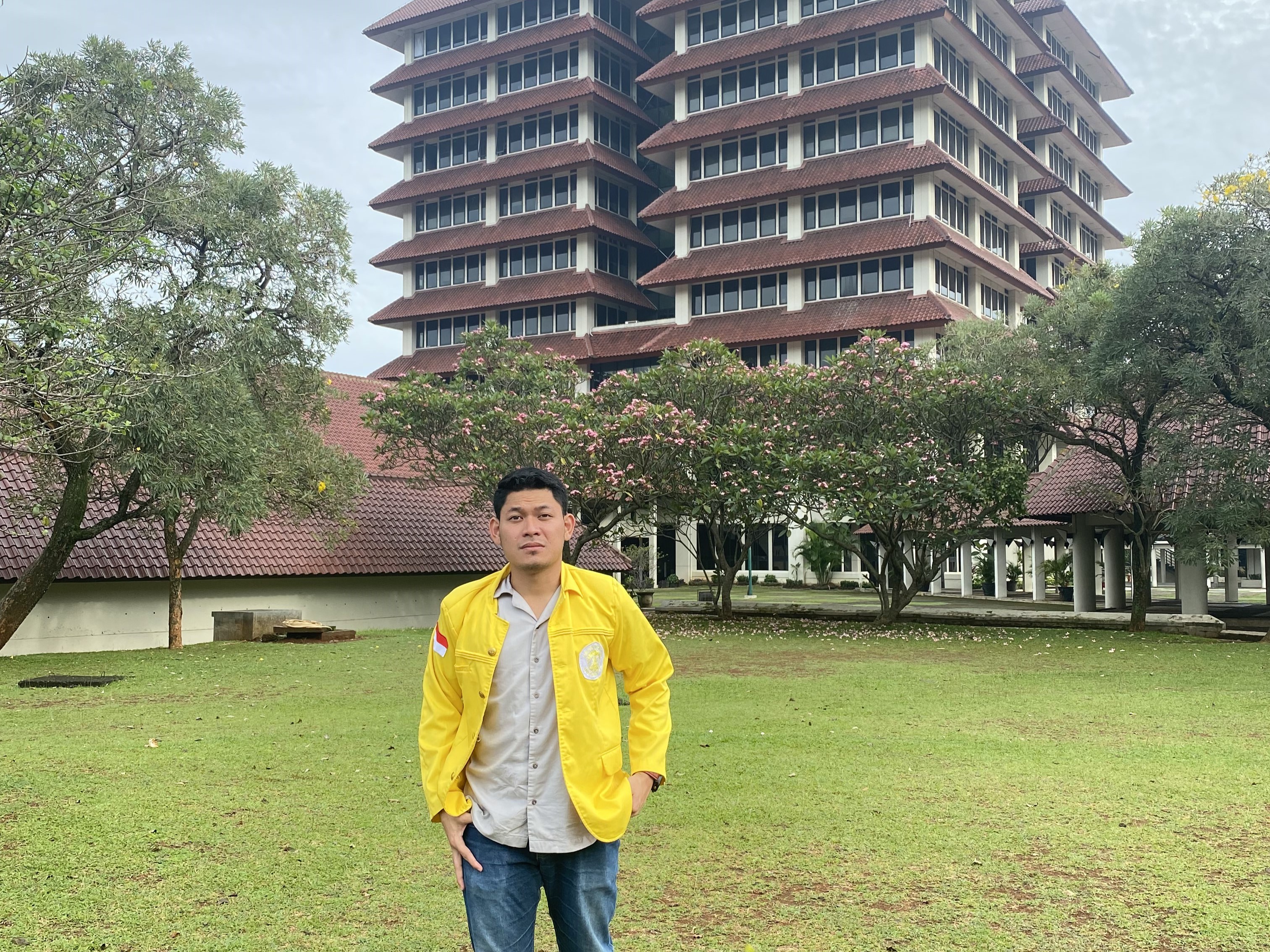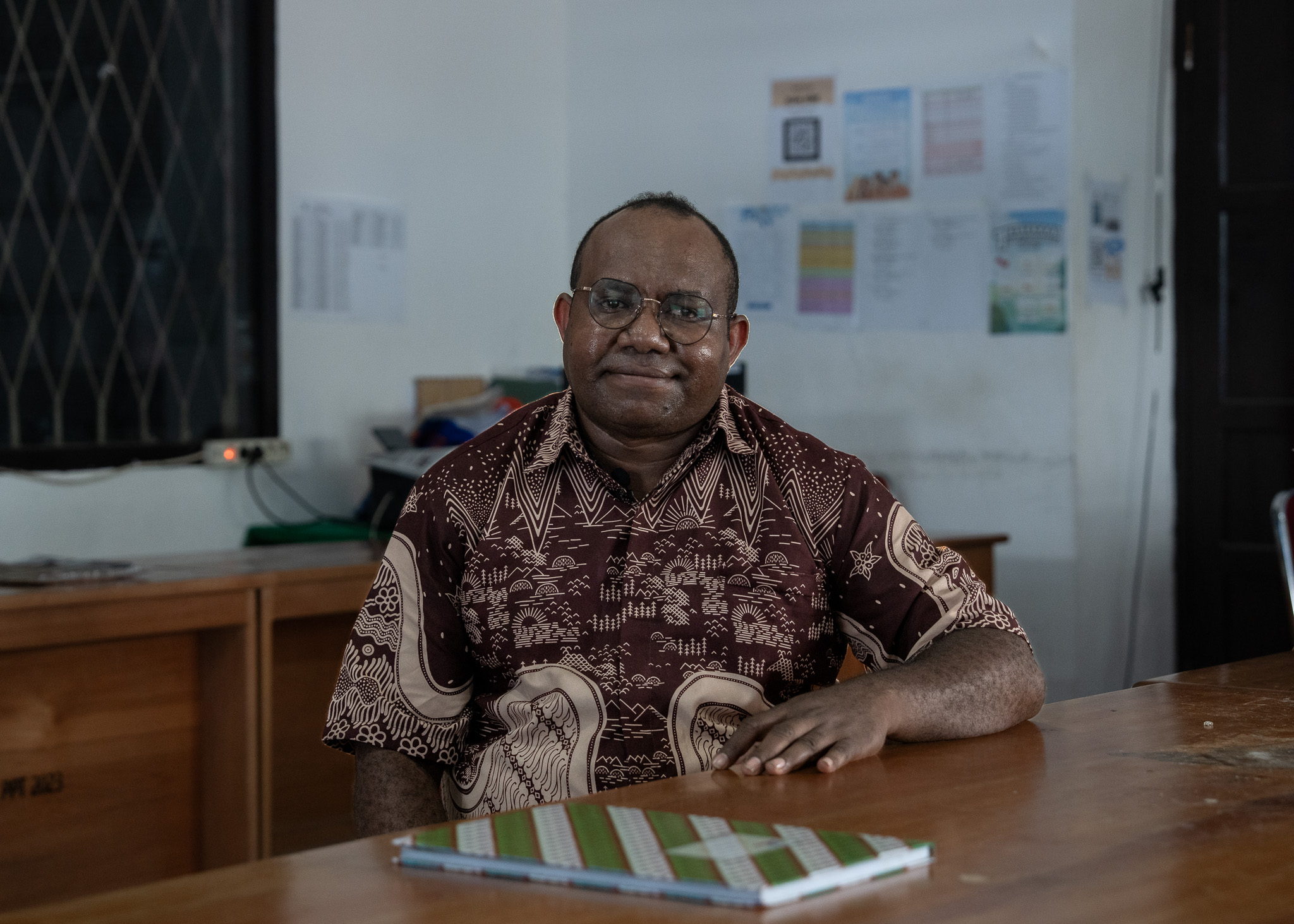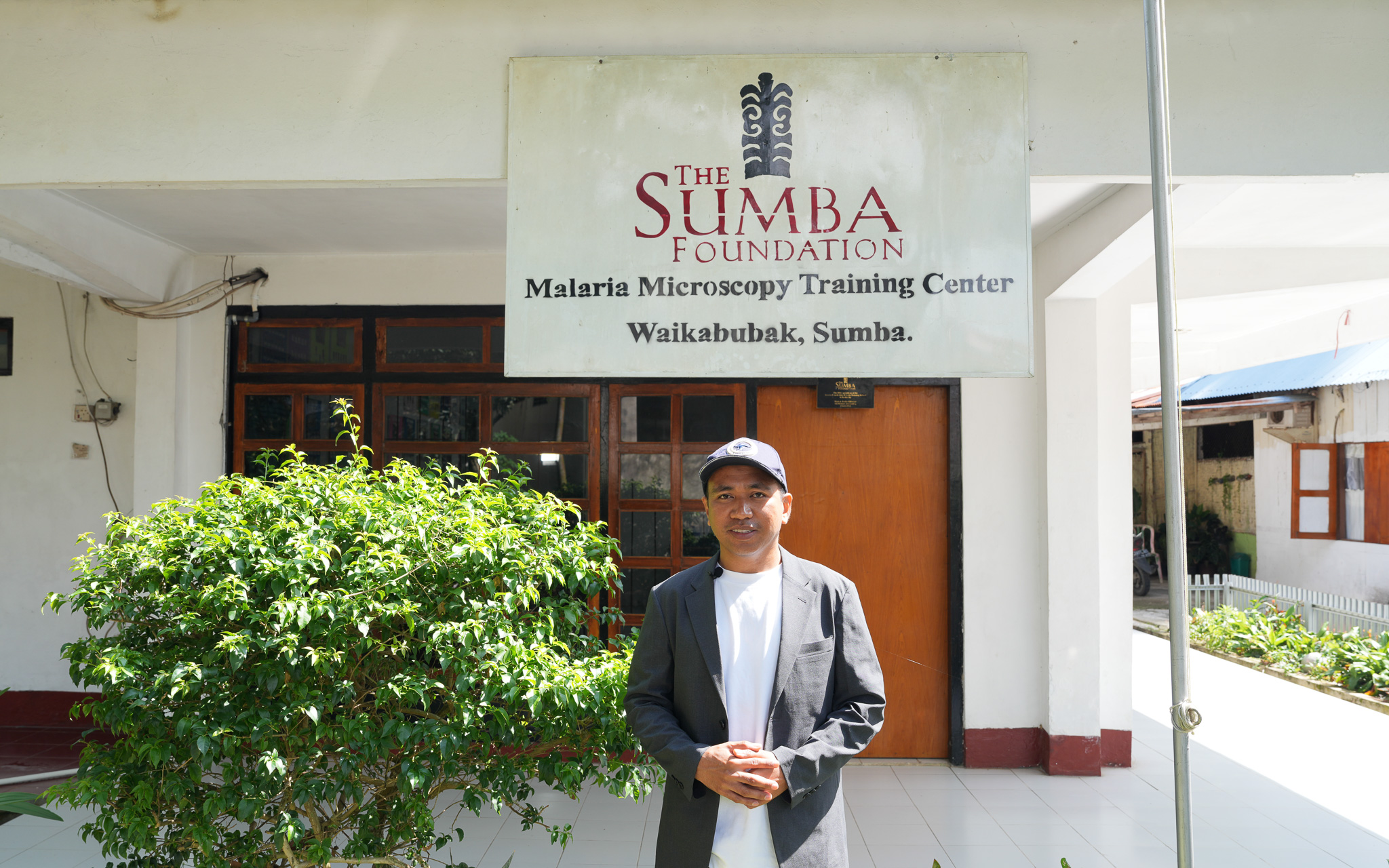Friendly, enthusiastic, and eloquent. That's the personality shown by Anas Anwar Nasirin, or fondly called Anas by those around him. Anas is currently pursuing a Master's degree in History at the University of Indonesia with a scholarship from the Indonesia Endowment Fund for Education Agency (LPDP).
Behind his cheerful personality, little did anyone know that his life journey has been tumultuous, worthy of inspiration and motivation. Born in 1997 in Cikalong District, Tasikmalaya Regency, West Java, Anas spent his childhood and teenage years in an orphanage.
His father worked as a cap and peci (traditional Indonesian hat) vendor. However, something happened. His father suffered from a mental illness in 2005. Five years later, his father passed away, leaving behind a wife and their three children.
Meanwhile, Anas' mother, who single-handedly raised their three children, worked as a farm laborer. Her income as a farm laborer was uncertain because it depended on the planting season. Additionally, she also had a mild stroke and diabetes, which affected her ability to work.
Cikalong is a district located at the southernmost part of Tasikmalaya Regency. It is directly adjacent to Pangandaran Regency and the southern sea of the Indian Ocean. The distance from the city center to Cikalong District is approximately 90 kilometers.
"The access to the city is very far. The access to education is also very limited because the district is vast. There is only one public high school in Cikalong District," explained Anas about the condition in his hometown.
Meanwhile, the socio-economic condition of the Cikalong community is mostly comprised of farm laborers who depend on the season. Some work as palm sugar makers, while others migrate to the city to work as domestic helpers, tailors, or migrant workers overseas.
Growing Up in Difficult Circumstances
Fully aware of the difficult situation of his underprivileged family, Anas, at his young age, made a determination to fight against the existing challenges. In his mind, he had the strong desire to continue his education.
Such thinking is not simple or common. He had to defy the dominant mindset in his environment, which believed that if one doesn't have enough money, the only choice is to migrate and work to earn sufficient income.
Tasikmalaya Regency itself still has a lot of work to do in reducing the dropout rate. In 2021, for example, the local Central Bureau of Statistics (BPS) recorded that the percentage of the population aged 7 to 24 who were not attending school was 27.23 percent.
"At that time, my spirit didn't waver, it grew stronger. I asked for help from a neighbor who had relatives working at Al-Rasyid Orphanage in Subang. I requested permission to stay at Al-Rasyid Orphanage in Subang," Anas said during a virtual interview.
Remembering vividly in July 2009, Anas finally took the risk of going to Al-Rasyid Orphanage in Subang with only 100,000 rupiahs left from the government aid for poor families. He then spent his childhood and teenage years in the orphanage.
Motivational books and novels became Anas' fuel to maintain hope and strive to change his future. This determination was proven by Anas consistently ranking in the top three throughout his schooling until junior high school.
Challenges arose when Anas had to return to Tasikmalaya and was forced to leave the orphanage. The reason was the urgent need to support his family's economy. Anas worked as a factory worker.
However, after only two weeks at home, his heart rebelled. His desire to continue his education was still too great. His motivation was to uplift his family's status, and Anas believed that it could be achieved through education.
He sought a solution by searching for a new orphanage that provided free education facilities and found it at Darul Inayah Orphanage in West Bandung Regency.
In that boarding school-based orphanage, Anas made a firm commitment to pursue his studies up to university level. His dream in 2015 was to study at Gadjah Mada University with the Bidikmisi scholarship.
His achievement of consistently being the first or second place throughout high school finally became a valuable asset for him to apply to universities through the Joint Entrance Selection for State Universities (SBMPTN). He was accepted into the History Department at Padjadjaran University.
Anas remembered that out of the 22 SBMPTN applicants from the orphanage, he was the only one who was eventually accepted into a state university. He also brought his two siblings to live in Riadlul Jannah Orphanage in Jatinangor.
"While studying at Unpad, I had a personal determination. I realized that as a minority, I might be the only orphanage child studying at Unpad. Therefore, I had to prove myself as a minority, meaning becoming a high-achieving student," Anas said.
Interest in History Studies
Anas's decision to major in history may raise questions for most people. It even faced opposition from individuals in the orphanage. The humanities field, particularly history, is clearly less popular compared to other majors that are typically seen as promising for future success.
"At that time, when I was in the orphanage, I faced opposition. Because history is a specialized, non-favorite field of study. Even in terms of employment opportunities, it's not as abundant as fields like Law, Economics, or Psychology," he said.
However, pursuing a field of study isn't always about following popular trends. Anas wasn't just playing it safe by choosing history as a major to easily gain admission to a public university. He admitted that he had been interested in history since his days in junior high school.
While in the 10th grade at Madrasah Aliyah, equivalent to high school, he delved deeper into historical readings when he encountered the works of Kuntowijoyo, a prominent history professor at Gadjah Mada University, and a renowned scholar familiar to history enthusiasts. It was from there that Anas became increasingly absorbed in devouring history books, learning about events and the journeys of historical figures.
Anas completed his undergraduate studies by finishing a thesis entitled "The Legal Politics of the Indonesian Government Regarding the Deployment of Indonesian Workers to Malaysia in 1984-1989." He shed light on the sending of laborers abroad to Malaysia in 1984. During the New Order era, the government's target under the Five-Year Development Plan (Repelita) to send as many workers as possible did not correspond to the conditions they faced in the field.
"During that time, the country tended to exploit them, but there was minimal protection for the migrant workers. They were prone to abuse or exploitation by companies or individuals offering jobs while in Malaysia. Even in the process, as victims, they often violated human rights principles," Anas explained.
Anas's interest in the topic of migrant workers was also rooted in his hometown. In Tasikmalaya, many residents work as laborers, including his mother who is a farmer, laborers who migrate to larger cities, and migrant workers. Those who choose to be migrant workers are mostly women. Many women leave their children to work abroad, leading them to be abandoned in poverty with low levels of literacy and knowledge.
As the eldest of three siblings, he almost lost his mother to become an overseas worker when he was in fourth grade in elementary school. Fortunately, this did not happen because his mother couldn't bear to leave Anas and his two younger siblings. Additionally, he had a friend whose mother worked in Saudi Arabia. His friend's life became neglected; no schooling, no proper care, and the money sent home didn't improve their living conditions.
Challenges and struggles continued to accompany Anas's journey. While participating in competitions, working on his thesis, assisting his younger siblings, and various other thoughts, he was struck with Bell's Palsy in 2018.
"My immune system weakened, and eventually, I experienced paralysis in the left side of my face due to the seventh cranial nerve," said Anas. As a result, he had to seek treatment and, of course, needed financial support. To cover the medical expenses, Anas took on a part-time job cleaning dorm rooms for Rp25,000 per room.
Having to divide his time between work and treatment caused his graduation process to be delayed, not aligning with the initial target of completing his studies in eight semesters. In order to prevent further delays, he had to quit his part-time job to focus on completing his thesis and graduating.
Continuing to Graduate School with the LPDP Pre-Prosperous Scholarship
After graduating, Anas served at the orphanage that had taken him in and supported him. He taught history and Islamic cultural history at Madrasah Aliyah and actively participated in various activities at the orphanage during the period from July 2020 to December 2021, which coincided with the Covid-19 pandemic.
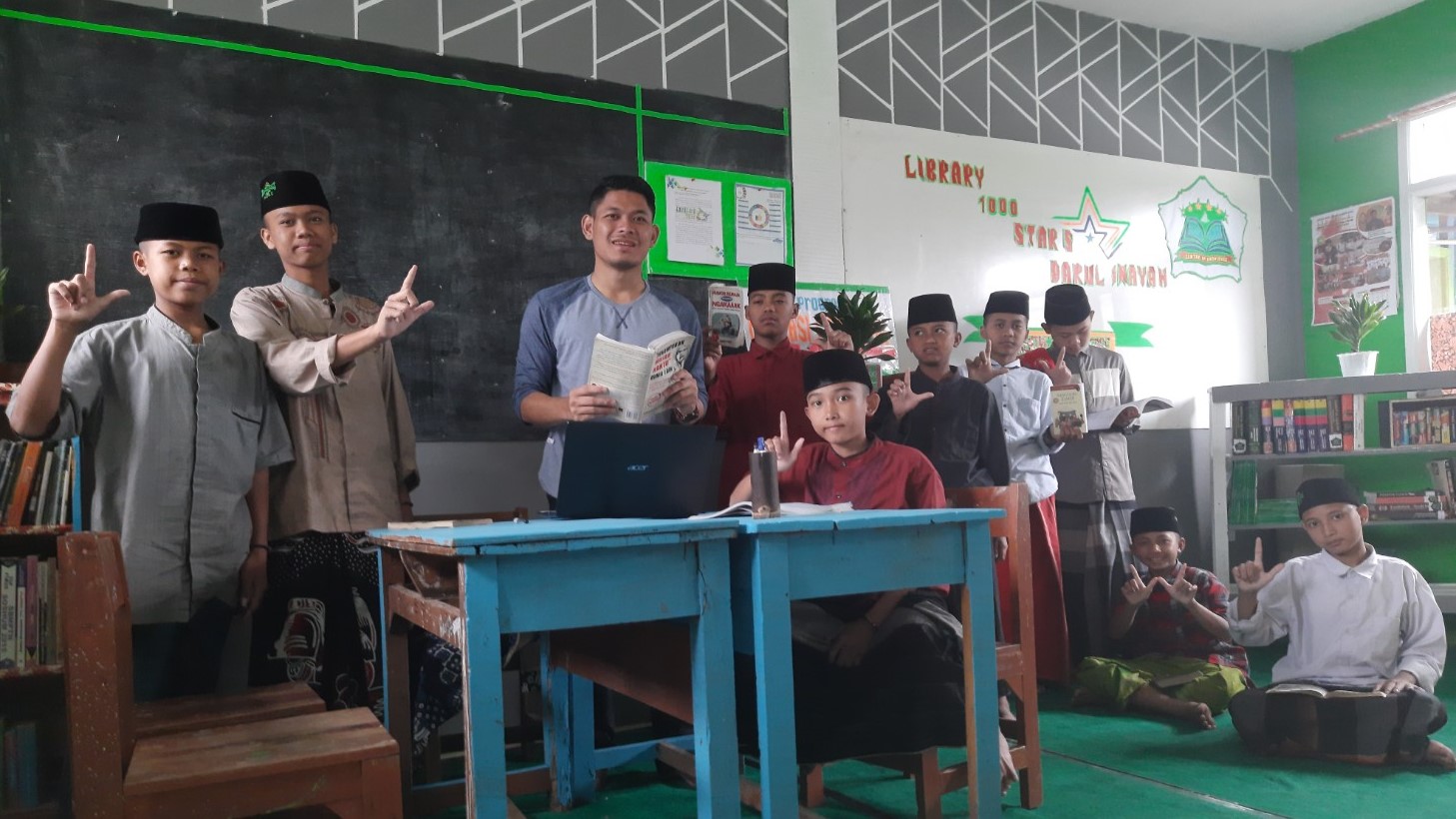
In the years that followed, Anas tried his luck in applying for the LPDP scholarship. This wasn't a sudden decision; since 2017, he had been eyeing the opportunity to continue his studies. Then, in 2022, with the help of supportive individuals in his circle, Anas gathered the courage to apply. Despite his undeniable track record, he recognized his shortcomings, especially in English.
Anas was eventually accepted at the University of Indonesia through the LPDP's Prasejahtera Scholarship program, which he deliberately chose. His interest in pursuing history studies is driven by his ambition to become a historian in the field of Islamic politics, migration, and labor. These are subjects closely tied to his life.
Currently, he is working on his thesis on the political history of Islam, focusing on the Darul Islam movement. He is drawn to this topic because the movement has roots in both local and global historical events and has had extreme impacts on terrorist activities in the country.
Under the guidance of Dr. Abdurakhman, M.Hum., and Prof. Dr. Hj. Nina Herlina Lubis, M.S., Anas is studying the roles of Islamic scholars during the DI/TII movement in West Java from 1949 to 1962. During that time, these scholars faced a dilemma - they were asked to join the DI/TII movement to provide input on the enforcement of Islamic law, but they were afraid of being captured by the Indonesian Army for rebellion.
"During the process, these scholars were divided. Some ultimately supported the DI/TII movement, some did not. They leaned more towards joining the army, aligning with the Indonesian government. Some remained neutral, choosing to hide, neither joining DI/TII nor the Indonesian government," said the man who aspires to continue his graduate studies in political science at the International Islamic University Indonesia (UIII).
Message to Underprivileged Children
Anas is fully aware that his life's journey is far from over and will require much more hard work and perseverance. However, based on his current achievements, he wants to convey a message to children, young people from similar backgrounds, that having dreams is crucial in life. Pursuing those dreams through education is important because it will influence one's way of thinking, perspective, and widen the opportunities to compete for decent employment.
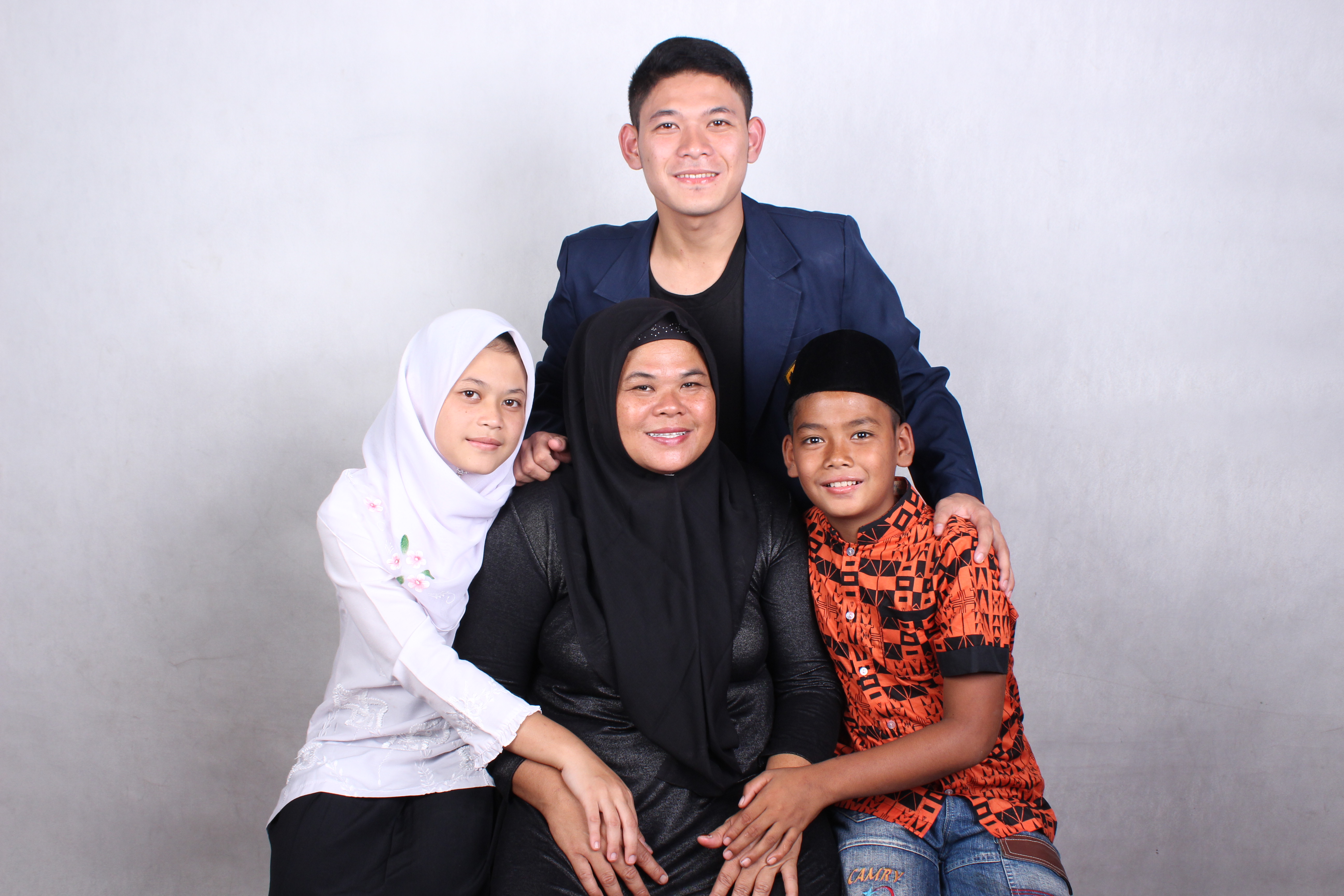
"Do not underestimate, belittle, or doubt your dreams. In reality, your dreams are your friends who will always strengthen and motivate you to be disciplined, diligent, and to fight relentlessly until those dreams become reality," said the PK-197 Acitya Syandana alumni.
The dreams and determination of underprivileged children have become brighter with the government's presence, providing high education scholarships to enhance the human resources of the nation. The benefits of inclusive education management through the LPDP's Prasejahtera Scholarship program can be felt even among the most marginalized groups.
"I express my gratitude to the LPDP Scholarship. Because this has paved the way for me, as one of the nation's sons, coming from an underprivileged family - I can still realize my dream of pursuing graduate studies. May God repay all the goodwill of the entire LPDP team," Anas concluded with gratitude.
